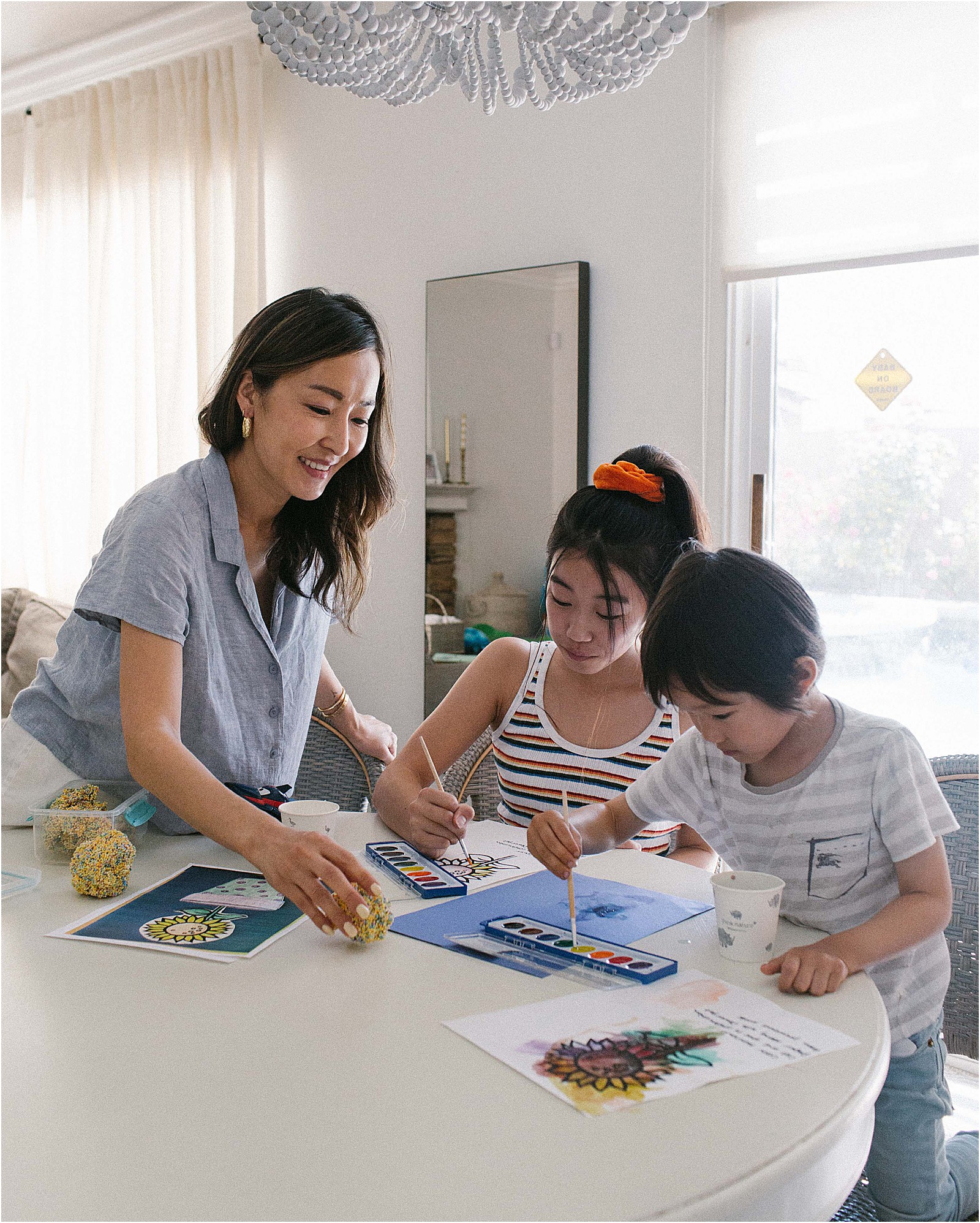Being a mom to young children often means that you constantly feel the need to find ways to entertain. Have you ever felt like you’re a babysitter to your own children? Yeah, me too.
Kids love to have social interaction, they have short attention spans, and (depending on the age) most likely haven’t developed the understanding that mommy or daddy can’t always play with them. If your young child doesn’t have a sibling around, the desire to have you as their playmate is even greater.
Today I’m going to share tips on how to encourage your child to play independently.

Encouraging Independent Playtime
At the time that I am writing this post, we are in the midst of COVID-19 and quarantined at home. Many of us are working from home while trying to be an engaged parent at the same time. This sh** is no joke! With that being said, now is an excellent and necessary, time to encourage solo play for your child. This can seem daunting, and at times downright impossible when you have a whole day’s worth of time to fill up.
Many parents struggle with finding a balance between screen time, learning time, and family time. Even if you aren’t working your normal job from home, mama still needs to get things done, ok?
Laundry, cooking, cleaning…the list goes on. Sometimes you just need a few minutes to yourself and there is no shame in that!
While independent playtime will allow you time to get all the things done, it’s also extremely beneficial for your child’s development, problem solving skills, and imagination.
In a world full of screens and instant gratification, our children don’t know how to be bored or have free time. Giving them that independent time can be a transition at first, but they will quickly learn how to enjoy time by themselves.
Today my 3 year old son can play by himself for 30 minutes up to an hour with his favorite toys. He even plays in the bath by himself with just a few toys and his imagination. I love watching this skill develop because I know it’s an important lifeskill that will benefit him in so many ways.

How To Encourage Your Child To Play Independently
If your child is used to having a friend, sibling, or parent to play with 24/7, breaking that dependence will take some time and effort. Here are some tips to help them become more independent.
Start small
The transition to playing independently is just that…a transition. If your child isn’t used to playing independently, I suggest starting in short chunks of time. Encouraging them to play with blocks, look at a picture book, or do a puzzle for ten minutes while you get a meal ready is the perfect starting place. These tiny chunks can then be extended into longer periods over time.
Set a timer
I love to use timers for so many things. Time on the iPad? Set a timer. Warning that it’s almost time to clean up and get pajamas on? Set a timer.
The same idea can be used for independent playtime. If you need to go get on a conference call or go do an at-home work out, be very clear in your expectations. Let your child know what you are doing, and how long it will take. Be sure they have what they need during that block of time.
Try saying something like “Mommy is going to do some yoga. You have your stuffed animals, puzzles, and coloring book to play with. I’m setting a timer for 30 minutes. When it goes off, we can spend some time together”.
Give them quality time
This is by far the tip that I have found to be the most consistently effective. Your kids love you and want to spend time with you. You have to give them that quality time before they can be expected to play on their own.
When I know I need to get something done, I will “set the stage” for my child by taking out some toys, books, etc. and sitting with them to play for a few minutes. I have found that this makes it much easier when I have to get up and go do something else.
I also make sure that I have certain longer periods of time during the day that my phone is away and I am giving them my undivided attention.
Give access to age-appropriate activities
If you are expecting your child to play independently, you want to be sure that they have access to age-appropriate activities. Of course it depends on the age, but I find that things like books, blocks, figurines, doll houses, sensory table activities, and any kind of arts and crafts are great options for independent play. For younger ages, rotating toys weekly can be a very helpful way to keep their engagement level high.
Let them be bored
How many times do you hear, “mom, I’m bored!” I hear this a lot in my household. And do you know what I say to them when they say this?
I tell them, “Learn to be bored because this is where magic happens!”
I’m sure you’ve heard that some of history’s greatest inventions and masterpieces came to life when the person was bored or in quarantine. It’s true! If we can teach our kids to how to be bored, we are teaching them how to be more present and have a more fulfilling internal life. It’s also the perfect time to create, learn and engage in new ideas!
Sometimes I think this is harder for parents than the child. Think back to your childhood. How many of your best days growing up were spent making up silly games, exploring your backyard, and getting lost in a book? Simple things like this get skipped over in our busy technology-filled world. It’s ok to put your child down and let them figure out something to do. In fact, I’d argue that it’s actually quite good for them.
As with everything I suggest, give yourself grace. Something that works for one kid may not work for another. What are your tips for encouraging your child to play independently? Leave your comments below!

